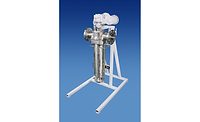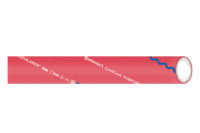Cleaning Up After Katrina
Sarah Theodore
Editor
The hurricane that hit the
U.S. Gulf Coast last month will be remembered for its strength, the vast
geography it impacted, and the chaos it left in its wake. Hurricane Katrina
exposed large gaps in our ability to react to an emergency, and as
difficult as it was to see the suffering that results from any natural
disaster, it was almost more frustrating to hear reports from those who
tried to help and could not get the information they needed to do it.
Some of those people were from the beverage industry,
and one who put a voice to those problems was Joe Doss, president of the
International Bottled Water Association. Nearly a week after the hurricane
made landfall, Doss said his organization was still struggling to get
donated water to affected areas.
“We and other industries who supply relief and
recovery supplies are finding that federal and state agencies cannot give
specific information as to where bottled water and items should be
delivered, who to contact, etc.,” he said in a statement. “IBWA
has raised this issue directly with an official at the Department of
Homeland Security, who acknowledged that there are logistical problems and
assured us that steps would be taken to correct this situation.”
Similar reports came from the pharmaceutical industry
and its attempts to donate medicine. The bottled water association
eventually took the issue into its own hands and used its network to gain
and distribute information.
The solutions to the government’s problems with
emergency relief will be debated for months to come, and part of
improvements for the future should include ways to handle industry
donations. Doss has said his organization is willing to take an active roll
in the “development of solutions to better enable federal, state and
local emergency response agencies act with greater efficiency and speed
with regard to bottled water distribution and coordination in future relief
operations.”
I also spoke with Diane Letson, director of food
sourcing for America’s Second Harvest, about other ways companies can
more effectively get their products to areas in need. Second Harvest works
with food and beverage companies to distribute products to a network of
more than 200 food banks and food-rescue organizations. It counts among its
regular contributors Pepsi-Cola Co., Coca-Cola, Welch’s, Kraft Foods,
Nestle USA, Ocean Spray, Cott Beverages USA, and many more.
Letson says the organization is able to pick up
donations from any location in the country or help companies coordinate
their own deliveries of product. Companies can donate product or
transportation services through the organization, and Second Harvest can
help determine which products are needed immediately and which ones will be
needed down the road for continued support. Although it is a stand-alone
entity, Second Harvest works with relief agencies such as FEMA, the
American Red Cross and the Salvation Army to provide supplies.
During the past several years, American corporations
have donated billions of dollars and millions of pounds of food and
beverages for disaster relief. Those donations should be made as easy as
possible. Getting through a disaster is hard enough, contributing relief
shouldn’t be. BI
Sneak Peek
| OCTOBER |
| Cover Story — Coca-Cola Enterprises |
|
|
| Category Focus — Private label |
| Marketing — Gender-specific branding |
| Beverage R&D — Organic ingredients |
|
NOVEMBER
|
| Category Focus — Energy and sports drinks |
| Marketing — Cross-merchandising promotions |
| Packaging — Innovative design |
|
|


